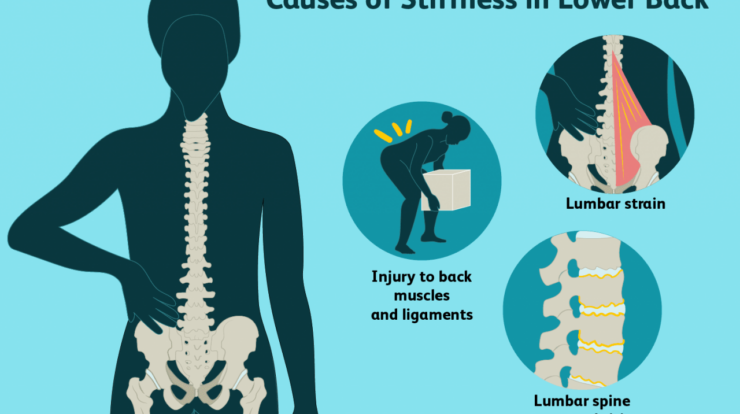
How to cure gum disease without a dentist – Yo, check it out! You’re about to drop some knowledge on how to handle gum disease like a boss, even without a dentist on speed dial. We’ve got your back with natural remedies, home care tricks, and more. Let’s dive in and keep your pearly whites shining bright!
Gum disease is no joke, but fear not! This guide will break down everything you need to know about preventing, treating, and managing it like a pro. From brushing your teeth like a ninja to ditching the smokes, we’ve got you covered.
So, let’s get started and show those gums who’s the real MVP!
Natural Remedies for Gum Disease
Gum disease is a common problem that can lead to serious health issues if left untreated. While there are many conventional treatments available, there are also a number of natural remedies that can be effective in preventing and treating gum disease.
Some of the most popular natural remedies for gum disease include:
Oil Pulling
Oil pulling is an ancient Ayurvedic practice that involves swishing oil in the mouth for 15-20 minutes each day. This helps to remove bacteria and toxins from the mouth, which can help to prevent and treat gum disease.
Yo, don’t trip if you’re rollin’ with gum disease and can’t hit up the dentist. Check this out: how to cure gum disease without a dentist . It’s got the 411 on home remedies and natural cures to get your gums back on point.
So, don’t let gum disease hold you back. Hit that link and get your smile back in the game!
The best oils to use for oil pulling are coconut oil, sesame oil, or olive oil. To do oil pulling, simply put 1 tablespoon of oil in your mouth and swish it around for 15-20 minutes. Be sure to spit out the oil after you’re done.
Yo, check it! If your gums are actin’ up, don’t trip. How to cure gum disease without a dentist is the bomb. No need to spend a stack on appointments. Follow the tips, and you’ll be rockin’ healthy gums in no time.
Get ready to flash that pearly white smile without droppin’ a dime!
Herbal Mouthwashes
There are a number of herbal mouthwashes that can be effective in preventing and treating gum disease. Some of the most popular herbal mouthwashes include:
- Tea tree oil mouthwash
- Myrrh mouthwash
- Clove mouthwash
To make your own herbal mouthwash, simply add 10-15 drops of your chosen essential oil to 1 cup of water. You can use this mouthwash 1-2 times per day.
Dietary Supplements
There are a number of dietary supplements that can help to prevent and treat gum disease. Some of the most popular dietary supplements include:
- Vitamin C
- Vitamin D
- Calcium
These supplements can help to strengthen the immune system, reduce inflammation, and promote healthy gums.
Home Care Techniques for Gum Disease Prevention

Yo, listen up! Gum disease ain’t no joke, but you can keep those gums fresh and healthy with these home care tricks.
Proper Oral Hygiene Practices
Brush your teeth twice a day, for real. Use a soft-bristled toothbrush and toothpaste with fluoride. Don’t forget to floss daily, it’s like deep cleaning for your gums. And don’t skip on tongue cleaning, it helps get rid of bacteria that can cause gum disease.
Choosing the Right Toothbrush and Toothpaste
Pick a toothbrush with soft bristles that won’t hurt your gums. For toothpaste, go for one with fluoride, it strengthens your teeth and helps prevent cavities that can lead to gum disease.
Yo, check it, gum disease ain’t no joke, but you don’t always need to hit up the dentist to fix it. Head on over to how to cure gum disease without a dentist and learn the lowdown on natural remedies that’ll keep your gums healthy and your smile bright.
Regular Dental Checkups and Professional Cleanings
Even with all the home care, you still need to see the dentist regularly. They’ll check your gums, clean them professionally, and give you tips to keep them healthy. Don’t be a slacker, book those appointments!
Diet and Lifestyle Modifications for Gum Disease Management

Gum disease, also known as periodontal disease, is a common condition that affects the gums and the bones that support the teeth. It can be caused by a number of factors, including poor oral hygiene, smoking, and certain medical conditions.
While gum disease can be treated with antibiotics and other medications, there are also a number of lifestyle changes that can help to prevent and manage the condition.
Dietary Modifications
Certain foods and drinks can contribute to gum disease by promoting the growth of bacteria in the mouth. These foods include:
- Sugary foods and drinks
- Starchy foods
- Acidic foods and drinks
Instead of these foods, it is important to eat a healthy diet that includes plenty of fruits, vegetables, and whole grains. These foods are high in fiber and nutrients, which can help to keep the gums healthy.
Yo, got some nasty gum disease? Don’t trip, you can totally fix it up without dropping dough on a dentist. Check out this sick link right here for all the dope tips on how to cure gum disease without a dentist.
It’s like, the bomb.com.
Smoking
Smoking is one of the worst things you can do for your gum health. Smoking damages the gums and makes them more susceptible to infection. It also reduces the amount of blood flow to the gums, which can slow down the healing process.
If you smoke, quitting is the best thing you can do for your overall health, including your gum health.
Stress
Stress can also contribute to gum disease. When you are stressed, your body produces hormones that can damage the gums. Stress can also lead to poor oral hygiene habits, such as not brushing or flossing your teeth regularly.
There are a number of things you can do to reduce stress, including:
- Exercise
- Yoga
- Meditation
Finding ways to manage stress can help to improve your overall health, including your gum health.
Alternative Treatment Options for Gum Disease
Yo, check it! Gum disease ain’t no joke, but there’s hope beyond the dentist’s chair. Alternative treatments got your back.
Laser Therapy
This ain’t Star Wars, but it’s close! Laser therapy uses a beam of light to kill bacteria and remove diseased tissue. It’s less invasive than surgery, but still gets the job done. Risks are low, but there might be some sensitivity afterward.
Scaling and Root Planing, How to cure gum disease without a dentist
This is the OG gum disease treatment. Your dentist scrapes away plaque and tartar above and below the gum line. It’s like a deep clean for your teeth. Expect some discomfort, but it’s worth it to stop the disease in its tracks.
Advanced Surgical Techniques for Severe Gum Disease

Severe gum disease may necessitate surgical intervention to restore periodontal health and prevent further tissue damage. Surgical options include flap surgery and bone grafting, each tailored to address specific disease severity and anatomical considerations.
Flap Surgery
Flap surgery involves lifting the gum tissue away from the teeth to access and clean the underlying root surfaces. This allows for the removal of calculus, bacteria, and diseased tissue, promoting periodontal healing and regeneration. Flap surgery is typically recommended for moderate to severe gum disease, where deep pockets have formed between the teeth and gums.
Bone Grafting
Bone grafting is a surgical procedure that aims to restore lost bone support around the teeth. In cases of severe gum disease, the supporting bone structure can be compromised, leading to tooth mobility and potential tooth loss. Bone grafting involves placing bone material, either natural or synthetic, into the affected areas to stimulate bone regeneration and strengthen the foundation for the teeth.
Conclusion
Alright, there you have it, folks! You’re now armed with the knowledge to keep your gums healthy and happy. Remember, consistency is key. Stick to these tips, and you’ll be flashing that winning smile with confidence. Stay tuned for more health and wellness secrets that’ll keep you feeling fresh and fly!
Popular Questions: How To Cure Gum Disease Without A Dentist
Can I use baking soda to treat gum disease?
Baking soda can help neutralize acids in the mouth, but it’s not a substitute for proper brushing and flossing. Use it sparingly as a gentle abrasive.
How often should I floss?
Aim for flossing once a day, preferably before bed. It removes plaque and food particles that brushing alone can’t reach.
Is gum disease contagious?
Gum disease is not directly contagious, but the bacteria that cause it can be spread through contact with saliva. Sharing toothbrushes or utensils is not recommended.





